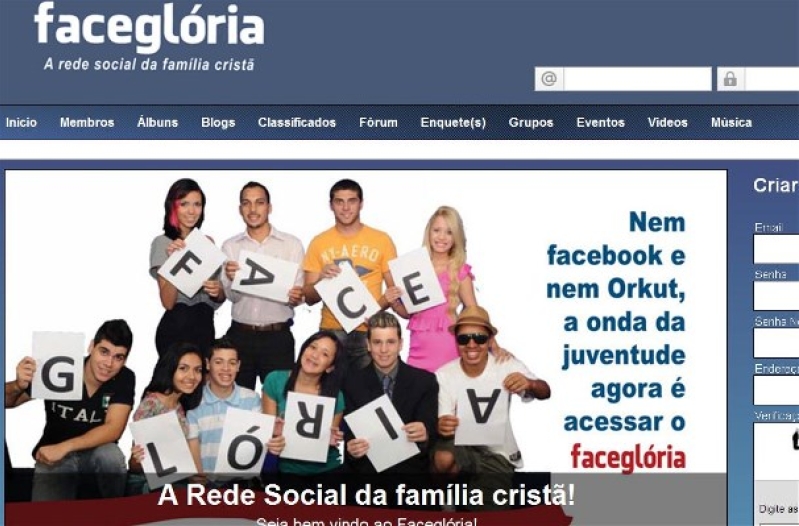
A new social network from Brazil called Facegloria has taken off, signing up 100,000 users in one month according to its founders. The website aims to be a Facebook alternative for Christians.
According to Nolan Feeney of Time, web designer Atilla Barros, who is one of four co-founders of Facegloria, came up with the idea for the site three years ago after looking at what Facebook does. Their social networking site featured an "Amen" button instead of the iconic "Like" button.
"On Facebook there is a lot of violence and pornography, so thought we'd found a network where we could talk about God, love, and share your word," Barros said.
Feeney reported that Facegloria prohibited content that was profane, violent, erotic, or featuring gay couples. More than 20 volunteers patrol the site looking for content that violates the rules; more than 600 terms have been banned from the site.
"We want to be better morally and structurally than Facebook," Barros said. "What we want is that the entire Brazilian evangelical public [to] migrate to Faceglória."
According to Feeney, about 63 percent of Brazilians identified as Catholic, making Brazil home to the world's largest Catholic country. However, the South American country has been affected by the evangelical movement.
"Brazil's evangelical Christian population has exploded in recent years, growing from 6 percent of the country in 1980 to 22 percent in 2010," Feeney wrote. "At that rate, the faith may become the most popular in South America by 2040."
Zoe Kleinman of BBC News reported that Facegloria is currently only available in Portuguese. However, other languages and a mobile app are in development.
According to BBC News, one of the investors in the Christian social network is Acir dos Santos, the mayor of Ferraz de Vasconcelos in Brazil. He has invested $16,000 so far in the start-up company.
"Our network is global," dos Santos said. "We have bought the Faceglory domain in English and in all possible languages. We want to take on Facebook and Twitter here and everywhere."
Programmer John Graham-Cumming told BBC News that religion and technology often intertwine. He cited the programming language of Perl as an example.
"There are some [programming] languages which have some religious symbols, the most notable is a language called Perl," Cumming said. "It was written by Larry Wall who is a Christian, and who has expressed that Christian faith, and within the language there are little clues about that. One of the key words is 'bless' - you can bless something, and it has a technical meaning."
According to BBC News, developer Terry Davis spent ten years building his publicly available Christian operating system, TempleOS. The software is full of Biblical quotes and references.
"TempleOS is God's official temple," the operating system's charter said. "Just like Solomon's temple, this is a community focal point where offerings are made and God's oracle is consulted."






